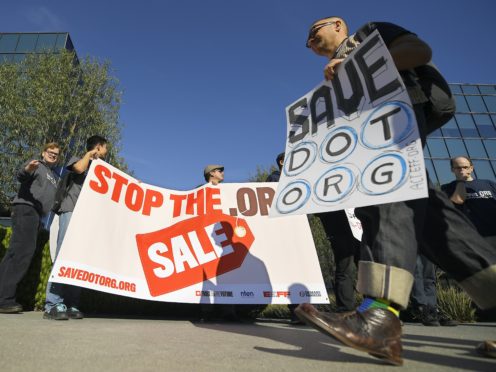The proposed 1.1 billion dollar (£880 million) sale of the dot-org online registry to an investment firm has been shelved following widespread opposition.
The Internet Corporation for Assigned Names and Numbers (ICANN) board voted not to allow the sale to Ethos Capital of the website suffix that is widely used by non-profits and community groups.
Activists, politicians and hundreds of organisations had protested that costs for non-profits would rise and freedom of expression would be at risk if a for-profit company were in charge of dot-org, one of the original domains created in the 1980s.
BREAKING: ICANN has voted to REJECT the sale of the .ORG registry to private equity firm Ethos Capital. This is a major victory for the millions of nonprofits, civil society organizations, and individuals who make .ORG their home online. #SaveDotOrg https://t.co/K2qk85c3Ug pic.twitter.com/sFLcwZqU1B
— EFF (@EFF) May 1, 2020
Vetoing the sale is “reasonable, and the right thing to do,” said ICANN’s chairman Maarten Botterman in a blog post.
Mr Botterman noted the “fundamental public interest nature” of the organisation that currently oversees dot-org which wold have been transferred to one “bound to serve the interests of its corporate stakeholders” had the sale gone through.
He also expressed concern over what the debt involved in the transaction would mean for those dot-org users, which include public radio broadcaster NPR, the Metropolitan Museum of Art and medical humanitarian group Doctors without Borders.
Ethos Capital and the Internet Society, the nonprofit founded by many of the internet’s early engineers and scientists that currently runs the registry, had said concerns were misplaced.
The investment firm said in a statement that the decision “will suffocate innovation and deter future investment in the domain industry” and that it is evaluating its options.
The Internet Society said it is disappointed “that ICANN has acted as a regulatory body it was never meant to be”.
The Electronic Frontier Foundation, which had campaigned against the sale, said ICANN’s decision was a “stunning victory for nonprofits and NGOs around the world working in the public interest”.
